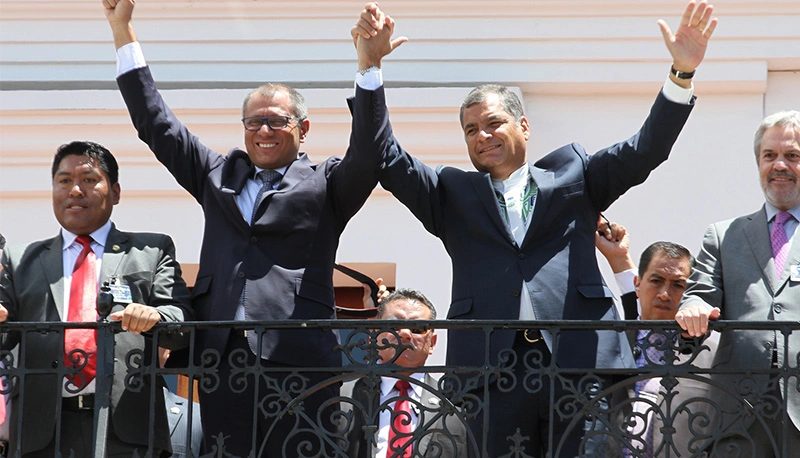Jorge Glas’s transition from a leading role in Ecuador with Rafael Correa to facing legal issues highlights the country’s complex politics.
From 2007 to 2018, they stood as formidable longtime left-wing leaders, but unforeseen circumstances led to Glas’s arrest, shedding light on the unpredictable nature of Ecuador’s political arena.
Mexico’s offer of asylum to Glas amidst charges of corruption in Ecuador sparked a global debate on the rights of asylum and the repercussions of his capture by Ecuadorian authorities.
The release of Glas in April 2022 became a defining moment, drawing widespread support and underscoring his ongoing political influence.
Legal barriers, however, have impeded his political comeback, mirroring the deep divisions and turmoil within Ecuador’s political landscape.

Glas’s steadfast loyalty, especially his refusal to discredit Correa or their party, has reinforced his reputation as a dedicated ally, despite being embroiled in controversy.
Such loyalty has made him appear as a casualty of political machinations, adding complexity to the ethical and legal aspects of his situation.
Glas’s rise from modest origins in Guayaquil to significant political influence illustrates his determination and drive.
His early connection with Correa, nurtured from their scouting days to collaborative roles in governance, significantly influenced Ecuador’s policy direction.
Accusations of embezzlement, which Glas staunchly denies, highlight the broader governance and accountability challenges in Ecuador.
His relatives’ involvement in corruption scandals brings a personal dimension to the debate, warranting a detailed review of his and Correa’s governance.
Understanding Glas and Correa’s impact on Ecuador requires acknowledgment of the pervasive issues of corruption, political conflict, and governance.
Their contributions and controversies form a complex legacy that calls for a comprehensive evaluation to grasp their lasting effect on Ecuador’s political and social landscape.

